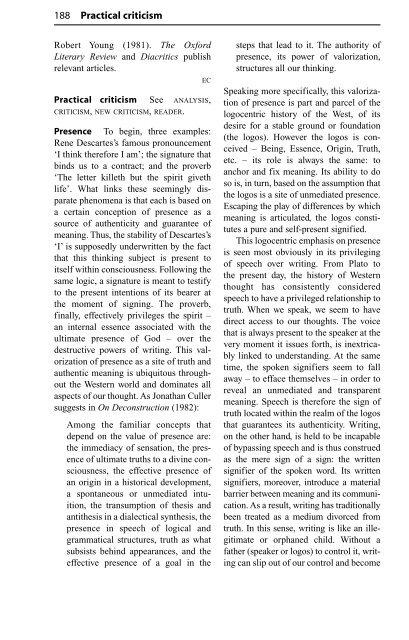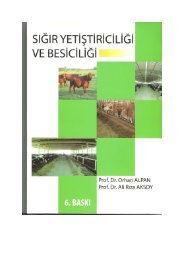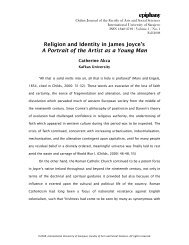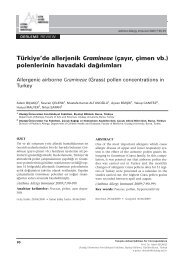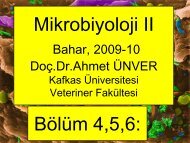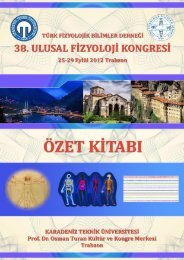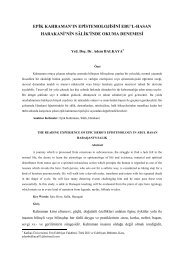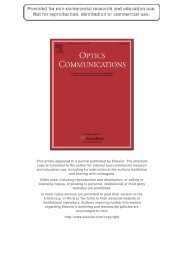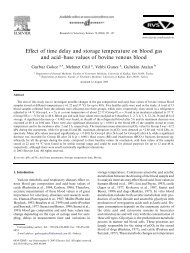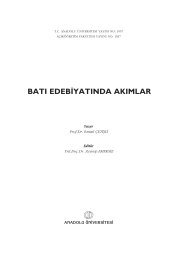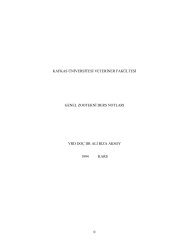The Routledge Dictionary of Literary Terms
The Routledge Dictionary of Literary Terms
The Routledge Dictionary of Literary Terms
Create successful ePaper yourself
Turn your PDF publications into a flip-book with our unique Google optimized e-Paper software.
188 Practical criticism<br />
Robert Young (1981). <strong>The</strong> Oxford<br />
<strong>Literary</strong> Review and Diacritics publish<br />
relevant articles.<br />
EC<br />
Practical criticism See ANALYSIS,<br />
CRITICISM, NEW CRITICISM, READER.<br />
Presence To begin, three examples:<br />
Rene Descartes’s famous pronouncement<br />
‘I think therefore I am’; the signature that<br />
binds us to a contract; and the proverb<br />
‘<strong>The</strong> letter killeth but the spirit giveth<br />
life’. What links these seemingly disparate<br />
phenomena is that each is based on<br />
a certain conception <strong>of</strong> presence as a<br />
source <strong>of</strong> authenticity and guarantee <strong>of</strong><br />
meaning. Thus, the stability <strong>of</strong> Descartes’s<br />
‘I’ is supposedly underwritten by the fact<br />
that this thinking subject is present to<br />
itself within consciousness. Following the<br />
same logic, a signature is meant to testify<br />
to the present intentions <strong>of</strong> its bearer at<br />
the moment <strong>of</strong> signing. <strong>The</strong> proverb,<br />
finally, effectively privileges the spirit –<br />
an internal essence associated with the<br />
ultimate presence <strong>of</strong> God – over the<br />
destructive powers <strong>of</strong> writing. This valorization<br />
<strong>of</strong> presence as a site <strong>of</strong> truth and<br />
authentic meaning is ubiquitous throughout<br />
the Western world and dominates all<br />
aspects <strong>of</strong> our thought. As Jonathan Culler<br />
suggests in On Deconstruction (1982):<br />
Among the familiar concepts that<br />
depend on the value <strong>of</strong> presence are:<br />
the immediacy <strong>of</strong> sensation, the presence<br />
<strong>of</strong> ultimate truths to a divine consciousness,<br />
the effective presence <strong>of</strong><br />
an origin in a historical development,<br />
a spontaneous or unmediated intuition,<br />
the transumption <strong>of</strong> thesis and<br />
antithesis in a dialectical synthesis, the<br />
presence in speech <strong>of</strong> logical and<br />
grammatical structures, truth as what<br />
subsists behind appearances, and the<br />
effective presence <strong>of</strong> a goal in the<br />
steps that lead to it. <strong>The</strong> authority <strong>of</strong><br />
presence, its power <strong>of</strong> valorization,<br />
structures all our thinking.<br />
Speaking more specifically, this valorization<br />
<strong>of</strong> presence is part and parcel <strong>of</strong> the<br />
logocentric history <strong>of</strong> the West, <strong>of</strong> its<br />
desire for a stable ground or foundation<br />
(the logos). However the logos is conceived<br />
– Being, Essence, Origin, Truth,<br />
etc. – its role is always the same: to<br />
anchor and fix meaning. Its ability to do<br />
so is, in turn, based on the assumption that<br />
the logos is a site <strong>of</strong> unmediated presence.<br />
Escaping the play <strong>of</strong> differences by which<br />
meaning is articulated, the logos constitutes<br />
a pure and self-present signified.<br />
This logocentric emphasis on presence<br />
is seen most obviously in its privileging<br />
<strong>of</strong> speech over writing. From Plato to<br />
the present day, the history <strong>of</strong> Western<br />
thought has consistently considered<br />
speech to have a privileged relationship to<br />
truth. When we speak, we seem to have<br />
direct access to our thoughts. <strong>The</strong> voice<br />
that is always present to the speaker at the<br />
very moment it issues forth, is inextricably<br />
linked to understanding. At the same<br />
time, the spoken signifiers seem to fall<br />
away – to efface themselves – in order to<br />
reveal an unmediated and transparent<br />
meaning. Speech is therefore the sign <strong>of</strong><br />
truth located within the realm <strong>of</strong> the logos<br />
that guarantees its authenticity. Writing,<br />
on the other hand, is held to be incapable<br />
<strong>of</strong> bypassing speech and is thus construed<br />
as the mere sign <strong>of</strong> a sign: the written<br />
signifier <strong>of</strong> the spoken word. Its written<br />
signifiers, moreover, introduce a material<br />
barrier between meaning and its communication.<br />
As a result, writing has traditionally<br />
been treated as a medium divorced from<br />
truth. In this sense, writing is like an illegitimate<br />
or orphaned child. Without a<br />
father (speaker or logos) to control it, writing<br />
can slip out <strong>of</strong> our control and become


